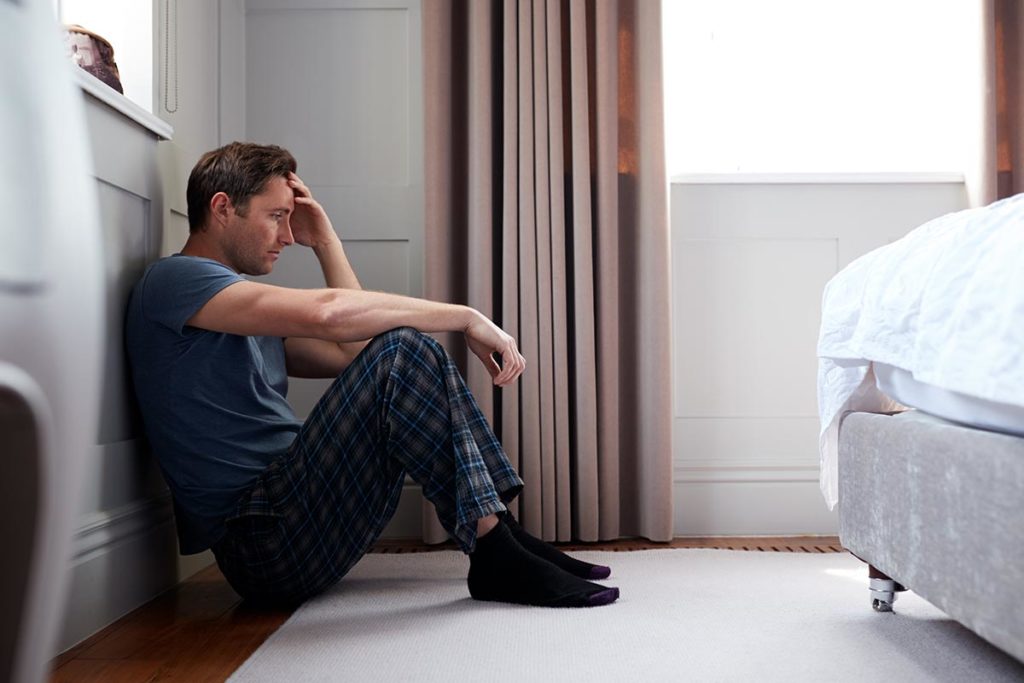Depressive disorders range widely both in type as well as in severity. If you think you’re experiencing symptoms, learning about the types of depression may be beneficial. At Recovery Bay Center, we provide comprehensive depression treatment that spans all types of disorders. When you reach out to us, we can provide support to meet each of your needs. Contact Recovery Bay by calling 833-991-2955 to learn more about our options for treating depression and addiction.
What Are the Types of Depression?
Depression disorders can be classified into five main types. People with all types of depression are at risk of developing substance use disorder and other mental health issues. The five classifications are:
Persistent Depressive Disorder
This condition occurs when a depressed mood lasts for two years or longer. It is sometimes called dysthymia. A person with this may have instances of major depression that come and go, with times of less severe symptoms. Yet, for the most part, they have depressive symptoms for a long period of time.
Psychotic Depression
This form is a more severe type of depression. It includes some type of psychosis with it. This may include delusions (i.e., false beliefs) or hallucinations (seeing or hearing things that are not there). Sometimes, there is a theme to this type of depression, such as illness or guilt.
Postpartum Depression
This form of depression is serious and requires treatment. It generally occurs in the weeks or months after giving birth. A woman may experience feelings of anxiety and extreme sadness during this time. Some of it may come from poor hormone regulation, while other times it is brought on by the stress and exhaustion of motherhood.
Bipolar Disorder
This type of depression includes instances of extreme highs and extreme lows. The extreme lows are referred to as major depression. A person with bipolar disorder may also experience cases of mania. Manic episodes include increased energy and euphoria.
Seasonable Affective Disorder
This type of depression often occurs in the winter months when a person is less likely to have access to Vitamin D from the sun and is more isolated from family and friends. It may lead to social withdrawal and increased sleep for some. If you have any of these depressive disorders, it is critical to reach out for help. Our trusted team of professionals can provide you with the one-on-one support you need to overcome these challenges.
Symptoms of Depressive Disorders
The symptoms you have will range based on the types of depression. However, some of the most common include:
- Periods of significant sadness sometimes that is unexplained
- Feelings of hopelessness or helplessness
- Unable to concentrate on your needs or responsibilities
- Thoughts of suicide or death
- Isolation from friends and family
- Use of drugs or alcohol to cope with symptoms of depression
Find the Depression Treatment You Need
If you are struggling with any of the types of depression listed here or symptoms that may seem like depression, don’t wait to get help. The sooner you do, the sooner you will start to feel healthy and restored. You can heal. Our team can offer the depression treatment you need and a range of therapy programs to stimulate a life that isn’t dependent on depression. Learn more about our therapies, including:
- Cognitive-behavioral therapy
- Dialectical behavior therapy
- Group therapy services
- Individual therapy services
- Trauma therapy program
Recognize Your Need for Help? Call Recovery Bay Center
As you learn more about the types of depression and how they may be impacting your life, don’t wait to get help. Depression treatment can be very effective, and it can be very safe for you as well. Our team offers treatment for all depressive disorders, allowing you to reach a new level of health and wellbeing. To learn how Recovery Bay Center can help you, call 833-991-2955 or reach out to us online today.

